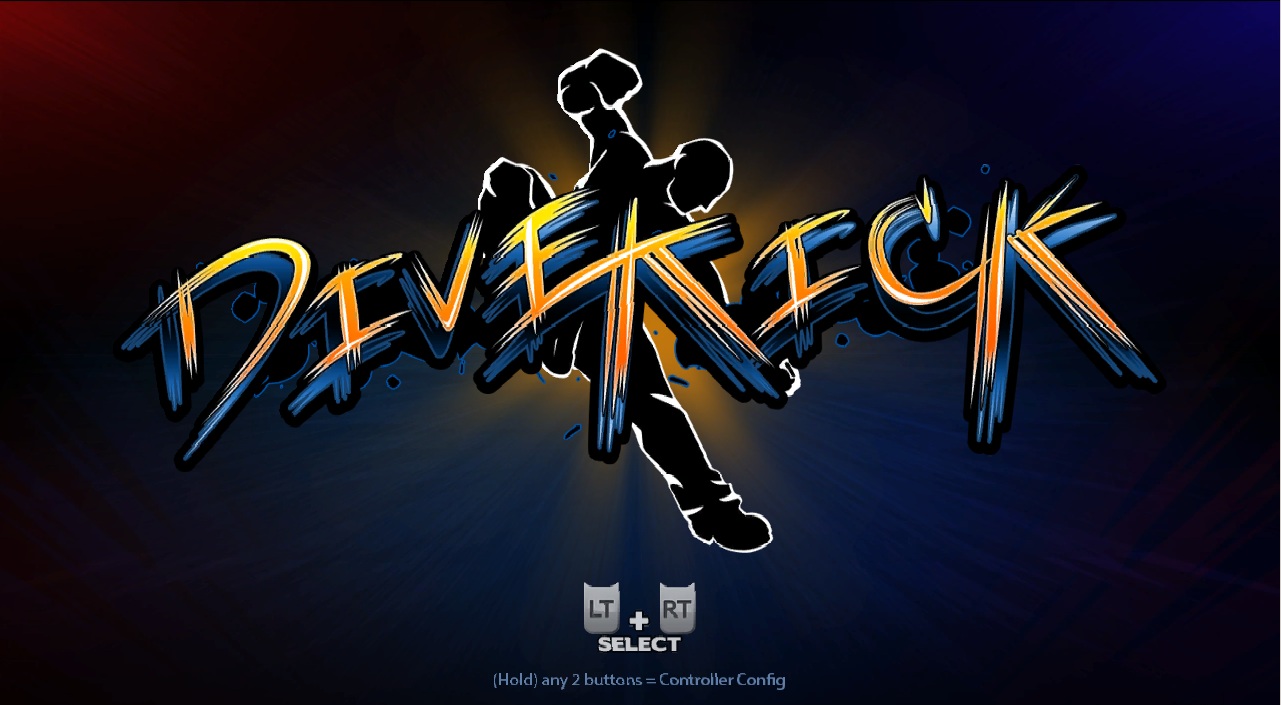
While out for a coffee with a non-gamer friend of mine last night, I happened to mention how exciting one of the recent matches I had played online in Divekick was. That led to a discussion about Divekick as a game, and after vainly trying to cut out the insanity of it for my explanation the best I could come up with was, “It’s like Bushido Blade, except there’s no asshole with a gun.”
It was an easy enough description, and for my group of friends it was close enough to drive the concept home. Bushido Blade was one of those games everybody here played, even if they didn’t play video games. It, and to a lesser extent Tekken 3, were two of the games that everybody played when there was still a difference between people who played games and people who didn’t.
Divekick feels like one of those games that, had it had been released a decade or more ago could easily have made it into that selective category. It’s simple enough in concept that almost anybody could pick it up and within minutes be able to, if not win, at least have a good time losing.
The roster of characters is surprisingly unique. Most of them have movements and attacks hugely different from one another, and each character has a meter that charges with every kick, allowing the player to utilize either a ground-based ability, or an air-based ability. If you manage to charge the meter fully – something that isn’t guaranteed to happen if it’s a quick match – the characters become incredibly fast, an effect which will last either until the meter runs out, the character gets kicked in the head, or the match ends.
Additionally, the game uses a “gem” system to add another variable into the mix. After selecting your character, a player can choose a single gem to have boost a stat for the round; either a 10% boost to their Dive (jump height), their Kick (kick speed), or how quickly their meter charges. There is also a fourth gem, the YOLO Gem. This gem is my personal favorite. It adds 30% to each of the three stats, but automatically gives 4 of the 5 wins needed to the opponent.
There’s something exhilarating in going into a ranked online match with the YOLO Gem equipped, and managing to pull off a win. It’s a built-in method to trash-talk an opponent without ever having to worry about slurs or other insults getting thrown around. If someone wins with a YOLO Gem, both players know exactly what just happened.
The online matchmaking, like everything else is the menus, is quick and easy. Navigate to it and it will automatically find an opponent for you to fight against. After the match ends it dumps you back into the matchmaking screen, and within a few seconds you have another opponent. It’s streamlined in a way that makes it easy to get a few dozen matches played at a time without losing hours out of the day.
Divekick does have a few issues, though. The menu navigation, like the rest of the game, is designed around the two button interface and can get annoying. This, in particular, becomes an issue when you accidentally click into the Versus menu, and realize there’s no way to back out of the menu short of forcing the game closed and relaunching it.
The online multiplayer offers a method to mute the microphone of your opponent, but it can only be done as the match is being created. Once both players have accepted the match and moved to character selection, the option is removed. If a player does not actively use their mic in the short window when muting is available then the option does not come up, which can lead to some very annoying instances of people turning their microphone on afterwards and blasting music or other noises. There is also no way to set the game to permanently mute all microphones.
There also appears to be an issue with the Steam version of the game, where the visual quality of the game degrades appreciably if a Steam notification pops up. This issue seems purely graphical in nature, and doesn’t actually impede the gameplay, so it’s less of a critical issue and more of a hopefully fixable gripe.
But the biggest complaint I have is the lack of any kind of expansive lobby system. Divekick is a game that screams for a crowd to be playing it, but when dealing with any sort of online play you can only ever have two people in a lobby at once. Super Street Fighter IV may have spoiled everyone in this regard, but some sort of Endless Mode style lobby that automatically swaps out the loser for the next player in the lobby would be an incredible boon to the online multiplayer aspect of the game.
So, sure. Divekick has issues, and in-jokes, and seems like it has potential to be a stupid game. Which, really, it is. Divekick is a stupid game, but I doubt most people who play it will try and make the argument that it’s a stupid game they regret getting.
This review is based on retail code purchased by the reviewer.



No Comments